Quiz
Available options: 1 to 25
Pre-Quiz Discussion On Vitamin B:
Introduction to Vitamin B:
Vitamin B, also known as the B-complex vitamins, comprises a group of essential nutrients vital for maintaining overall health. These water-soluble vitamins play diverse roles in the body’s metabolism, energy production, and cellular functions.
Types of Vitamin B:
Vitamin B is a complex of several distinct vitamins, including:
- Vitamin B1 (Thiamine)
- Vitamin B2 (Riboflavin)
- Vitamin B3 (Niacin)
- Vitamin B5 (Pantothenic Acid)
- Vitamin B6 (Pyridoxine)
- Vitamin B7 (Biotin)
- Vitamin B9 (Folate)
- Vitamin B12 (Cobalamin)
Functions of Vitamin B:
Each type of Vitamin B performs unique functions in the body:
- Vitamin B1 aids in carbohydrate metabolism and nerve function.
- Vitamin B2 is essential for energy production and antioxidant activities.
- Vitamin B3 supports skin health and the nervous system.
- Vitamin B5 helps in hormone synthesis and cholesterol metabolism.
- Vitamin B6 contributes to amino acid metabolism and neurotransmitter synthesis.
- Vitamin B7 is crucial for fatty acid synthesis and healthy hair, skin, and nails.
- Vitamin B9, crucial for DNA synthesis and cell division, supports overall cellular health.
- Vitamin B12 is vital for the formation of red blood cells and optimal nerve function.
Sources of Vitamin B:
Vitamin B can be obtained from various food sources, including:
- Whole grains
- Meat (such as poultry, fish, and red meat)
- Dairy products
- Eggs
- Leafy greens and vegetables
- Nuts and seeds
Importance of Vitamin B:
Vitamin B is indispensable for overall health and well-being. Its deficiency can lead to various health issues, including fatigue, weakness, nerve damage, and anemia. Incorporating Vitamin B-rich foods in the diet or taking supplements, under medical supervision, can help maintain optimal health and vitality.
Deficiency of Vitamin B
Vitamin B deficiencies can lead to various health issues, depending on the specific B vitamin that is lacking. Here are some common consequences associated with deficiencies of different B vitamins:
Vitamin B1 (Thiamine) Deficiency:
Beriberi: A condition affecting the nervous system and cardiovascular system, characterized by weakness, fatigue, and nerve damage.
Vitamin B2 (Riboflavin) Deficiency:
Ariboflavinosis: Results in sore throat, redness and swelling of the lining of the mouth and throat, and cracks or sores on the outsides of the lips.
Vitamin B3 (Niacin) Deficiency:
Pellagra: Causes skin rashes, diarrhea, and mental disturbances.
Vitamin B6 (Pyridoxine) Deficiency:
Anemia: Can result in a form of anemia due to impaired hemoglobin synthesis.
Neurological issues: May lead to neurological symptoms like irritability, depression, and confusion.
Vitamin B7 (Biotin) Deficiency:
Skin issues: Can cause dermatitis, especially around the eyes, nose, and mouth.
Hair and nail problems: Brittle nails and hair loss may occur.
Vitamin B9 (Folate) Deficiency:
Anemia: Folate deficiency can lead to megaloblastic anemia, characterized by large, immature red blood cells.
Neural tube defects: Insufficient folate during pregnancy may increase the risk of birth defects in the baby’s brain and spine.
Vitamin B12 (Cobalamin) Deficiency:
Pernicious anemia: Results from the body’s inability to absorb B12, leading to a decrease in red blood cell production.
Neurological issues: Can cause numbness, tingling, and cognitive disturbances.
Test Guidelines and Time Limit:
Guidelines for Maximizing Your Quiz Experience:
Read and Understand:
Carefully read each question related to Vitamin B and ensure you have a clear understanding of the concepts before selecting your answer. This will help you make informed choices and avoid misconceptions.
Choose the Best Answer:
Evaluate all available options before selecting the one that aligns best with your knowledge of Vitamin B. Strive for accuracy and relevance in your responses.
Time Management:
The quiz has a time limit based on the number of questions you choose. Allocate 45 seconds per question. Manage your time wisely to complete all questions within the allotted time.
Efficient time management increases your likelihood of successfully completing the quiz and submitting your answers within the designated timeframe. Best of luck!
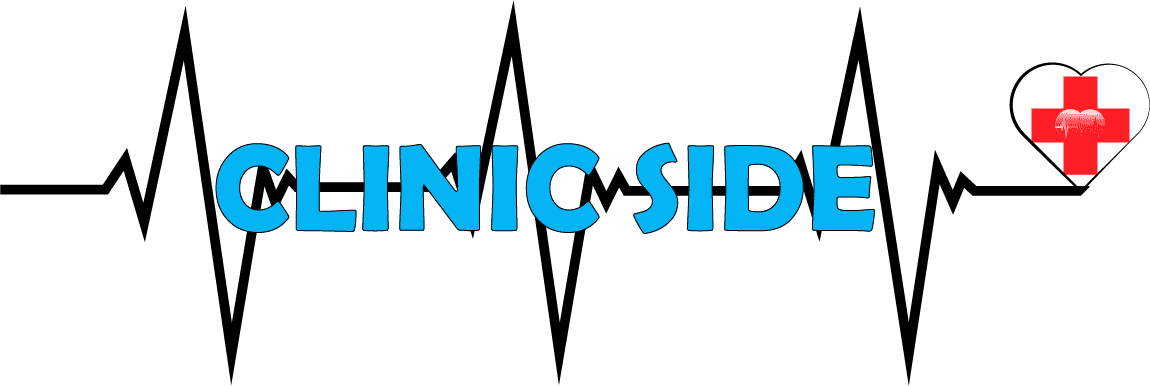

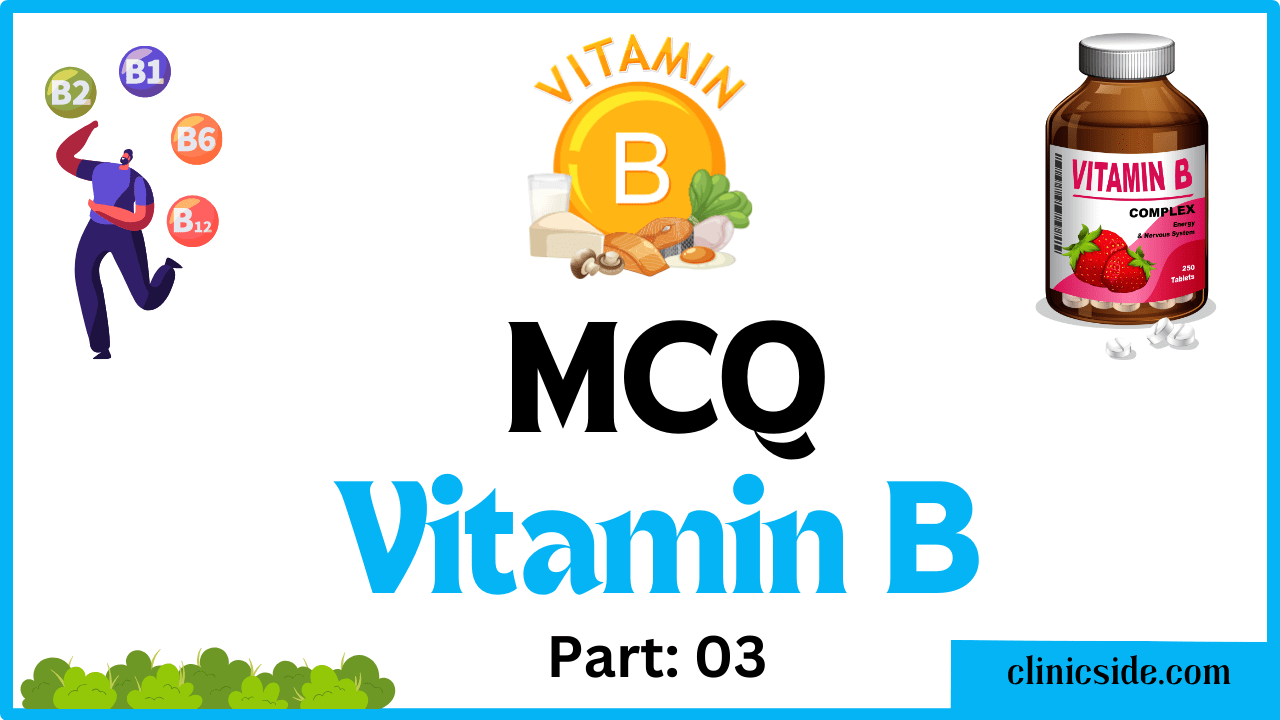
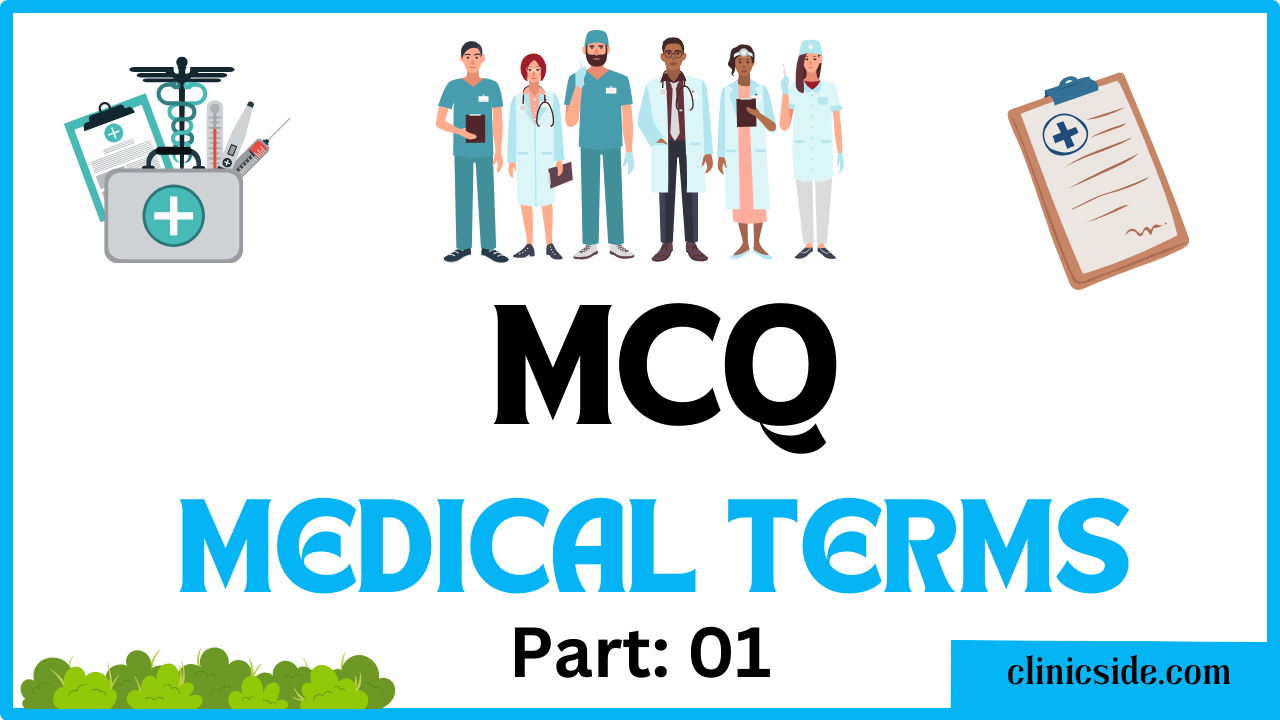

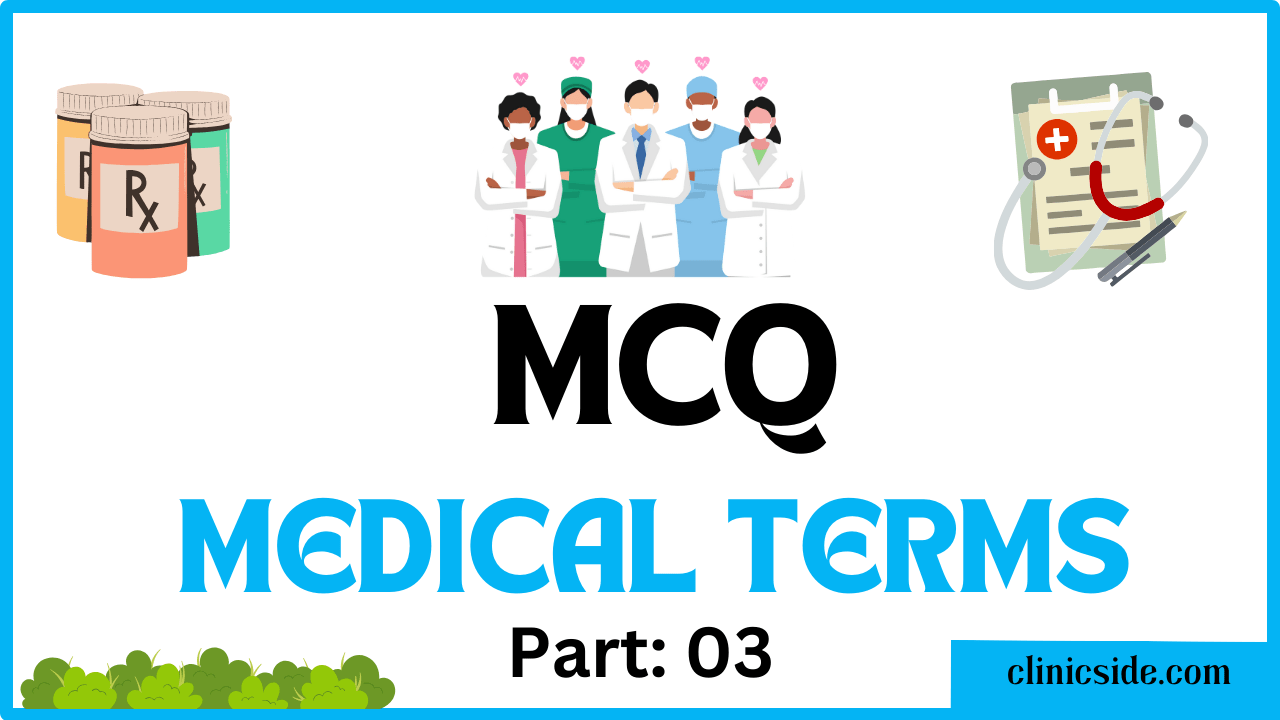
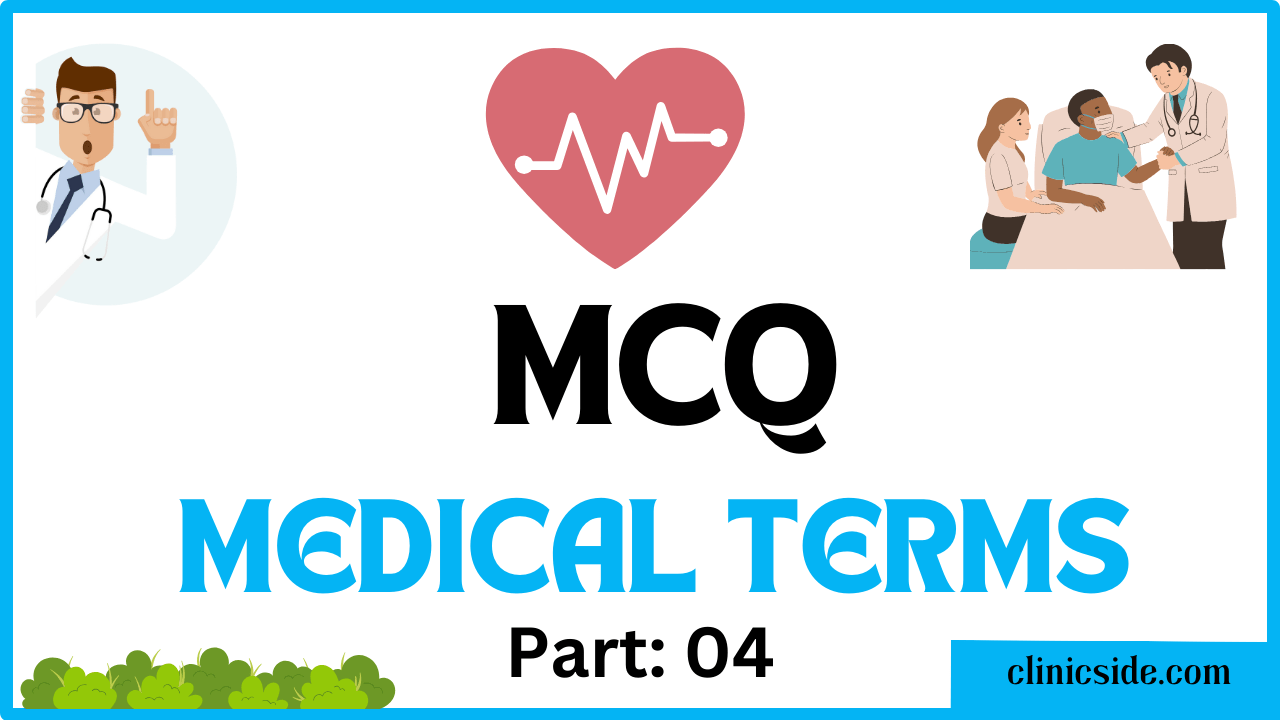
Dear clinicside.com admin, Your posts are always on point.